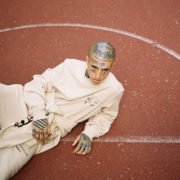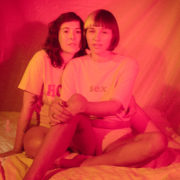GUAP Interviews: Director Gareth Evans on New Action Crime Series “Gangs of London”. [@SkyUK] [@NOWTV] [@gangs_of_london]
Gangs of London Is Every Crime Action Lover’s Lucid Dream Come To Life
Sky Atlantic’s new series Gangs of London is every action lover’s dream. Co-created by Gareth Evans and Matt Flannery who have become legends in East-Asian Action martial arts films. Gangs of London is an epic crime drama that centres around The Wallaces, who are family of gangers that are the top of London’s crime food chain. The series begins with the death of Finn Wallace (played by Colm Meaney). Following the assassination of the infamous criminal, all hell breaks loose and supposed heir to the crime kingdom, Sean Wallace played (Peaky Blinder’s Joe Cole) seeks revenge and is willing to burn down the entire city of London until he finds out who is responsible for his Father’s death.
As the hunt expands, an undercover policeman who poses as a foot soldier to the Wallace family and all of their scary business associates. The incredibly talented Sope Dirisu who plays Elliot seizes the opportunity to win the trust of the tempered Sean Wallace, who is under the pressure of maintaining a reputation of power and violence that his father left behind. Gareth Evans flexes his muscles in action-film direction with intense hyper-realistic action sequences. The series is unafraid to show the true violence of the criminal underworld, it is certainly not for the faint-hearted. You all hear every bone break and blood-curdling fight, as chaos breaks loose in search of the killer of Finn Wallace.
Overall Gangs of London sticks to its promise of being the operatic story-telling of crime, family, and power. We see alliances made and broken as well as many noses and legs. Buckle up for the ride of your self-isolation life and make sure you check out Sky Atlantic’s Gangs of London, available to watch on Sky and Now TV. We had the opportunity to speak to the Director of the action-filled crime series – Gareth Evans. Check out the interview below!
What makes Gangs of London different from crime dramas set in London like Luther or Top Boy?
Gareth Evans: When we were designing the show we didn’t want to make it social commentary. We didn’t want to do something that Top Boy had already done so well. So we knew we were talking about contemporary London, we knew we were talking about a global city that has a wide range of cultures. So from where I was standing, I’m known for these big action set pieces. And I feel that quite often when you’re trying to make something feel like social commentary or grounded in a reality. As soon as you include one of those action set pieces in there it feels disingenuous and it throws off the balance. For me I felt that the important thing was that I know what I enjoy, I know the kind of thing I want to make, I know what I’m good at. And so, we stripped the social commentary and made it a more operatic mythic version of London, and did away with the reality of it. This allowed us to explore a range of characters that were larger than life and take them on events and journeys that felt extraordinary.
How much research went into the characters and world-building? Did you base the writing on real-life stories of past London gangs?
Gareth Evans: We did quite a lot of research. We did a deep dive into the crime world of London. We met with former undercover cops, gangsters who had turned good and journalists to get a sense of really what’s going on in the city.
Can you tell us a little about how you applied your experience in East Asian action cinema to Gangs of London?
Gareth Evans: First and foremost, before we could design an action sequence at all, we would go through the characters. We would try and find the reason as to why they would have a certain knowledge of a martial art discipline and what discipline that would be. And how that would change their body language, their posture, their approach. So when it came to someone like Sope Dirisu, who plays Elliot. We knew we could get away with giving him a judo and boxing background. Because he had a natural instinct for it when we were doing fight tests with him. And so that carried over in some of the movements we gave him so he would incorporate them in a way that would feel more rugged and raw. There were some moments in the action sequences that were stylised but it was very important that every fight sequence felt like a real fight. And we would do this across every action sequence and every character.
How important was diversity to you when creating Gangs of London?
Gareth Evans: Diversity was really important to us because London is an incredibly diverse city. It shares similarities to one of my favourite cities New York. Which is that you can be on any given street and you’ll hear 50 different languages spoken. So we wanted to represent that. Even though we were telling very heightened stories that were incredibly operatic, it was very important to us that when it came to the casting, the actors we hired were authentically cast to their role. So we had really interesting performers who could also speak their mother tongue.
You’re known for your incredible extended action set pieces, given this is a long-form series as opposed to a film, how much action should we expect?
Gareth Evans: Yes, it gets very heavy in places. We wanted the action pieces to be organic to the story. It couldn’t just be oh here’s the action piece for this episode. The action pieces had to be something that was going to move the story. And so, they do grow in terms of scale as the show continues.
At GUAP Magazine, we have many young and upcoming film directors, screenwriters, and producers who are a part of our audience, who would be especially keen to know any advice you had to share about being a director. What would be your advice to creatives just starting out?
Gareth Evans: For me, my best advice is that I wish I made more short films and had picked up my craft a little earlier. I feel like I could have benefited from having a short film that was solely focused on performances. Then another short film that was purely focused on visuals. So I think honing in on your craft is one of the most fundamental things. I think the most important thing is to always appreciate that you’re doing it. I always dreamed of working in the film industry, since I was a kid. And I grew up in a quiet remote village, with no way into getting into the industry. But now I have the privilege to actually call this a career. So no matter how hard and how difficult a day maybe, it’s an absolute privilege to be here.
Check out the GUAP Arts & Culture section, to discover new art, film, and creative individuals.





![ZINO VINCI’S ‘FILTHY & DISGUSTING’EP BRINGS YOU TO THE CORE OF THE ARTIST [@ZinoVinci]](https://guap.co/wp-content/uploads/2023/10/Zino-4.jpg)





![Remel London’s [@Remel_London] “Mainstream” is a must attend for upcoming presenters!](https://guap.co/wp-content/uploads/2017/02/REMEL-LONDON-FLYER-FINAL-YELLOW-COMPLETE-1.png)